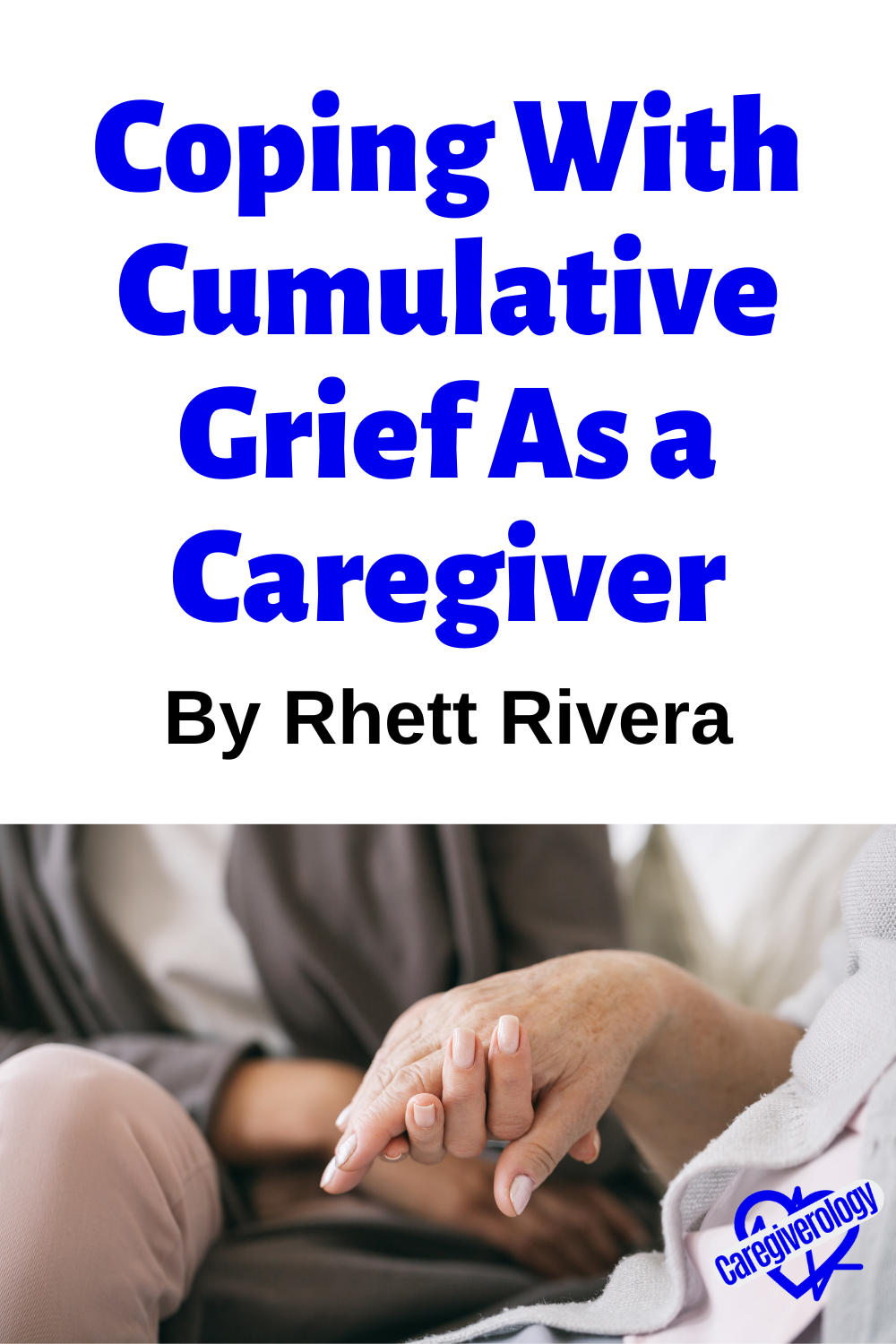Coping With Cumulative Grief As a Caregiver
As a caregiver, you can have a closer relationship to death than most people. You might even experience losses one after another, before you have time to fully process the first loss. This can lead to something called cumulative loss—also known as bereavement overload.
If you find yourself experiencing multiple losses in quick succession, it’s important to take care of yourself and process your emotions fully. To help you out, we’ve outlined several ways to recognize bereavement overload and process your grief.
Understand The Risk Factors
While anyone is capable of experiencing cumulative grief, there are factors which put you more at risk. For example, if you’ve always struggled with expressing yourself emotionally, this could elongate your grieving process, increasing the odds that you experience cumulative grief.
Additionally, when you don’t have support from friends or family, it can make it more difficult to fully accept your loss. After all, when you lose someone, it helps to have an emotional support system where you can vent your feelings and lean on others. Just feeling like you’re being heard goes a long way toward healing your wounds.
In this way, it helps to practice healthy communication habits while building a strong emotional support system around you as a caregiver. It’s particularly helpful if you could talk to other caregivers about the loss you experience, since they likely understand—to an extent—the pain you feel.
The Impact of Bereavement Overload
When you experience bereavement overload, there is a variety of common side effects, including (but not limited to):
- Avoidance: It’s common to avoid places or activities that remind you of the person you lost.
- Guilty feelings: As a caregiver, you might think of what you could have done differently to save your patient.
- Exhaustion: Sometimes the emotions associated with bereavement overload lead to sleep issues and loss of appetite. These side effects can cause you to feel exhausted.
- Disconnection: It can become difficult to express yourself and talk to others.
If you’re feeling all of these side effects after experiencing consecutive loss, you may be experiencing bereavement overload. Just know that these feelings are natural and will lessen with the passing of time.
Coping With Grief
Coping with grief doesn’t come easy for everyone. If you’re feeling overwhelmed by your loss, you might feel like shutting down or ignoring your feelings. While this is a natural response, there are other ways you can work toward processing your loss, including:
- Journaling: When you feel a wave of grief, write down everything you’re thinking and feeling for 5-10 minutes. This will help you articulate your emotions and reduce stress in the moment.
- Talk to someone: Don’t be afraid to utilize your support system when you experience loss. If you feel like there isn’t anyone you can talk to, you might want to schedule yourself a session with a therapist.
- Practice Mindfulness: Grief comes in waves that can feel overwhelming. When this happens, it’s helpful to be able to breathe through your feelings and connect with the present moment. Mindfulness can help you keep your stress under control and relax.
As a caregiver, it can be painful to experience the loss of multiple patients in close succession. It can feel both overwhelming and as though it’s never going to end. But when you adopt healthy coping mechanisms and prioritize self-care, you can make progress toward fully processing your grief.
For more information about bereavement overload, check out the infographic by RetireGuide below.
Please include attribution to Retireguide.com with this graphic.
Thank you Rhett Rivera for contributing this article.
Mental Health and Support Articles
From Coping With Cumulative Grief As a Caregiver to Home
Recent Articles
-
Common Truck Crash Injuries and Legal Remedies - Caregiverology
Jul 19, 25 10:49 AM
Known for its sun-drenched beaches, vibrant arts scene, and bustling maritime industry, Fort Lauderdale is a city that sees heavy traffic both on its roads and at its busy port. Unfortunately, with th… -
Why Expert Legal Help Matters After Serious Injury - Caregiverology
Jul 19, 25 10:35 AM
In Houston, over 67,600 car crashes occurred in 2023, resulting in 290 fatalities and 1,612 serious injuries. That’s roughly 185 accidents every day. -
How Life Care Planners Support Injury Recovery - Caregiverology
Jul 19, 25 10:18 AM
In Los Angeles, life care planners play a vital role in supporting injury recovery, especially for individuals facing catastrophic injuries such as traumatic brain injuries or spinal cord damage.





New! Comments
Have something to say about what you just read? Leave a comment in the box below.